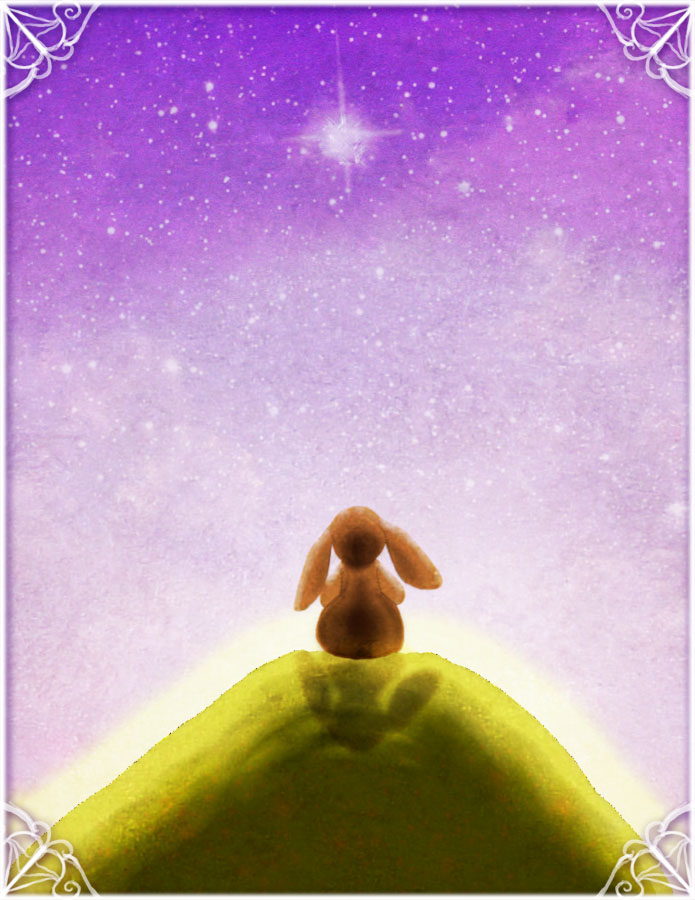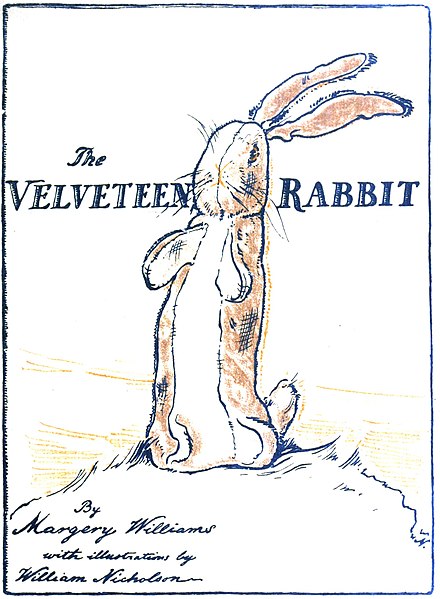I've been playing with idea of that as metaphor for being Externally, there's a form we present to the world -- generally pleasing, attractive to some, invisible to others. Like a Build-a-Bear for humans.
Right under that skin, like a layer of fat, is fear. Maybe it's fear of being abandoned or fear of death or fear of inadequacy -- but it's all fear. Terror, even. We maintain our plush exteriors to keep the fear hidden from ourselves and the world, and we work too hard for success or drink too much or obsess about our appearance or whatever we do to keep that fear from poking through the stitching that holds our exterior together. For some people, the fear layer may be tissue-thin, like Thinsulate. For others it's like blubber that keeps arctic animals warm.
But it's only a layer. Under that is our true nature, which is radiant and kind and loves unconditionally. This is our real rabbit. It too can leak out through the needle holes made by the stitches that hold us together, but only if we can poke holes in the fear.
And that is why we practice. Meditation and contemplation and study are the ways we wear through the fabric of our selves, the tools for poking holes in the fear, and letting the real rabbit inside us out so that it eventually becomes who we are.
In the Velveteen Rabbit, one of the older toys, the Skin Horse, tells the still-stuffed bunny about becoming Real through a child's love.
"Real isn't how you are made," said the Skin Horse. "It's a thing that happens to you. When a child loves you for a long, long time not just to play with, but really loves you, then you become Real."That last statement gets at equanimity, one of the Brahma Viharas, or Divine Abodes. Enlightened people may still be hurt, but they don't make it worse by interpreting it or projecting additional arrows. Equanimity creates space and balance for everything to be accommodated, painful and not.
"Does it hurt?" asked the Rabbit,
"Sometimes," said the Skin Horse, for he was always truthful. "When you are Real you don't mind being hurt."
from 'The Velveteen Rabbit', by Margery Williams
 |
| By RJDaae |
A teacher once told me the Buddhist practice is about "loving the self to death." Rather than deeming our constructed selves as something deficient and wrong that must be stripped away and discarded, it's about loving our inner nature so much that the exterior we created at the Build-a-Human workshop can dissolve.
We love even the form, seeing it as a misguided attempt to protect that which we worried was too fragile to stand up to the world. When we love our defenses, they become redundant and fall away. The constructed skin wears out, and the buddhanature shines through.
For that to happen, we have to develop trust in our nature, just as the Velveteen Rabbit had to believe he could become Real.
And that is hard.
"You trust your impure nature more than your pure nature and yet talk about enlightenment. Enlightenment arises by not doing anything. Samsara arises because you have to do so many things. But you still see that – Samsara - as being easier than Nirvana. If this is not ignorance, what is?” Her Eminence Mindrolling Jetsün Khandro Rinpoche


